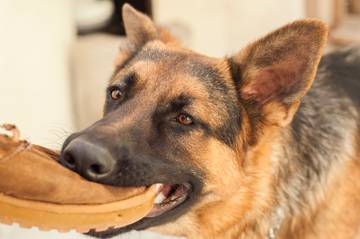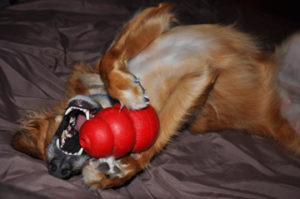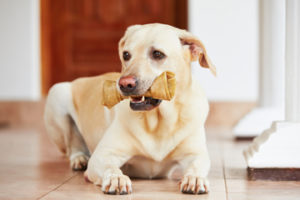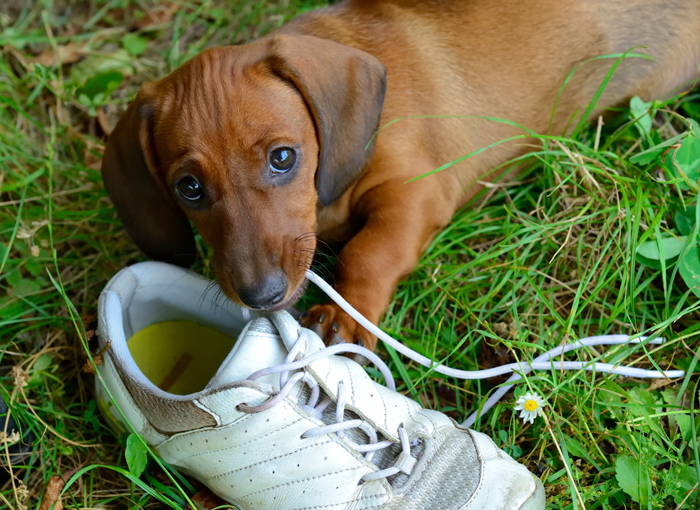Chew on this, not that!

If there’s one thing dogs really like to do, it’s chew. Puppies in particular are known for their penchant for gnawing on just about everything they can get their teeth on. And pups aren’t the only ones; some adult dogs never outgrow the desire to chew.
Chewing is natural for dogs. Puppies explore their environment with their mouth, and are quick to sample everything by biting down first and asking questions later. Teething also makes puppies want to chew, since chewing helps relieve some of the pain caused by erupting teeth.
While older dogs don’t have the same intense drive to chew as puppies do, they still enjoy gnawing as a way to expend excess energy and satisfy their need to bite down on something hard.
All this chewing can be tough on your house and yard if you don’t find a way to channel it. Puppies are notorious for chewing up shoes, socks, kids’ toys, remote controls, patio furniture and just about anything else within reach. Adult dogs sometimes find something that strikes their fancy—like a hardcover book or your cellphone—and will make short work of it with their sharp teeth and powerful jaws.
It’s not difficult to control your dog’s chewing if you follow these guidelines:
Chew Toys

You can’t change your dog’s natural desire to chew, but you can dictate what he chews on. The pet products industry offers a huge array of chew toys for dogs, and includes everything from stuffed animals to rubber balls. Pay a trip to your local pet supply store or visit an online pet supply retailer and survey the chew toys. Look for well-made products that are nontoxic and durable. Figure out which types of toys your dog likes the best, and provide him with new ones every so often so he doesn’t get bored.
Edible Chews
A favorite of many dogs are edible chews. This category includes everything from deer antlers to sticks made from Himalayan yak milk. These hard, natural products are particularly appealing to dogs because they mimic the kinds of materials your dog’s wolf ancestors might find in the wild. Although dogs shouldn’t be left unsupervised with these types of chews, these products can keep your dog occupied for long periods of time and satisfy his need to gnaw.
Containment

Puppies learn what is okay to chew and what is not, so it’s your job to teach your baby dog the ropes. The best way to do this is to prevent him from developing the habit of chewing the wrong things. This means supervising him when he’s in the house or yard, and confining him when you can’t watch him. An exercise pen or crate with his favorite chew toys will help him learn to chew only what you have given him.
Deterrents
If your dog has picked out something he wants to chew on and no matter how much you tempt him with chew toys and edible chews, he won’t leave it alone, it’s time to break out a deterrent. Bitter apple spray, available from pet supply retailers, is a very effective product for keeping dogs’ teeth away from delicate surfaces. It’s especially good for protecting wood from puppy jaws. Spray it liberally anywhere your dog inappropriately chews.
About the Author: Audrey Pavia is an award-winning freelance writer and author of “The Labrador Retriever Handbook.” She is a former staff editor of Dog Fancy, Dog World and The AKC Gazette magazines. To learn more about her work, visit www.audreypavia.com and hollywoodhoofbeats.net/





